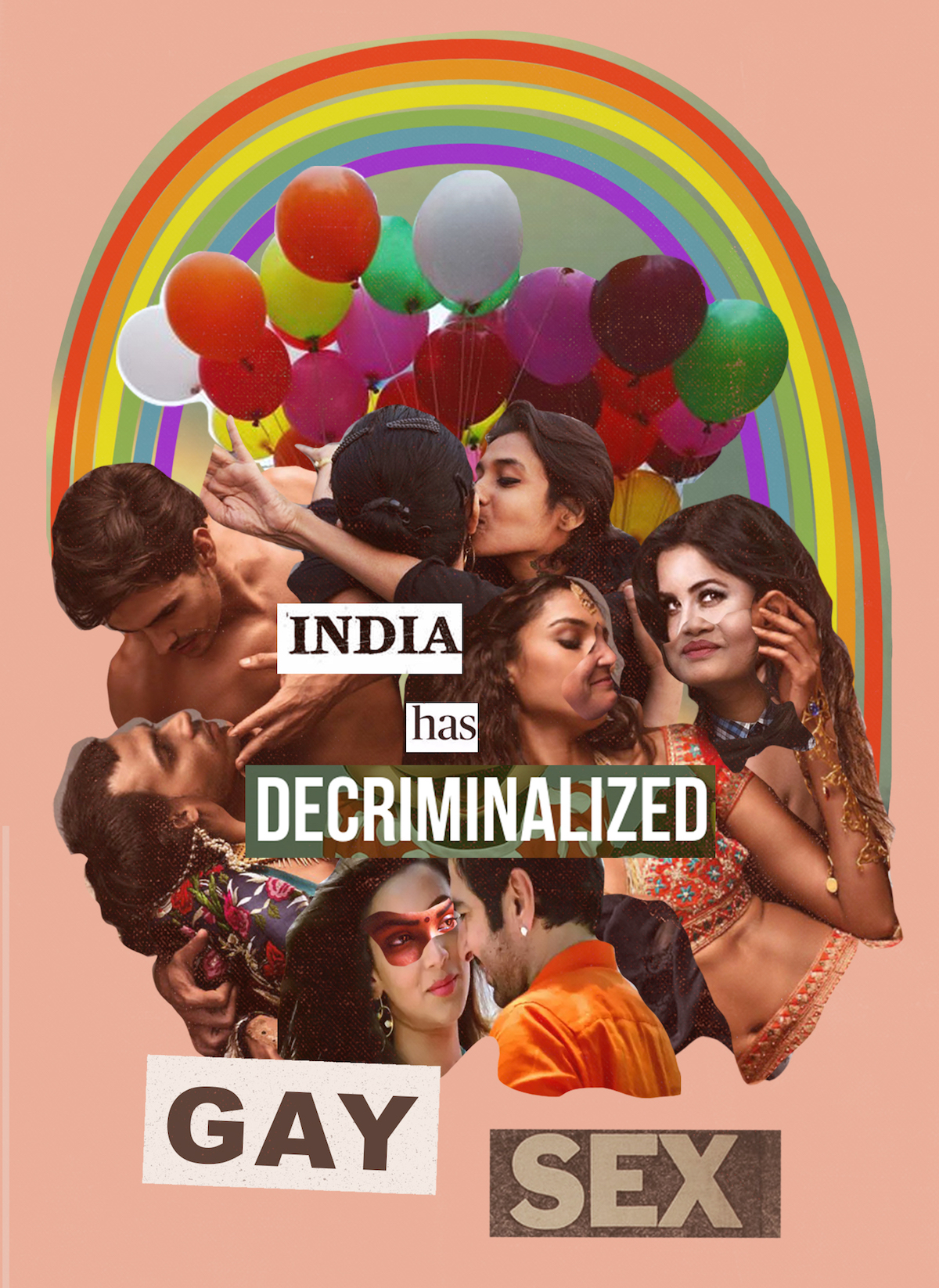But whilst I imagine the Hollywood-centric events leading up to 2018 felt like a chance…
India has decriminalized gay sex
A historic ruling for the LGBT community27 September 2018
On September 6th, India’s Supreme Court repealed Section 377, a law criminalizing consensual gay sex, in a unanimous ruling of five judges.
The law had originally been put into place in the 1860s under the rule of British colonizers and though India’s dominant religion, Hinduism, is largely permissive of same-sex couples, the Victorian-era stance on the issue had endured.
It’s only in recent years that India’s attitude towards homosexuality has shifted, with more Indians coming out and an increase in LGBT representation in popular culture, and now, the decriminalization of gay sex, which marks a major victory for India’s LGBT community. But even so, much of the country still remains divided over rights for the gay community. Many Indians are socially and religiously conservative, and India’s Prime Minister Narendra Modi has been silent about the issue, as have other Indian politicians.
LGBT Indians are often faced with the difficult choice of remaining in the closet or coming out and being rejected by their family and community. This is especially true for LGBT women, who are sometimes pressured, or even forced, into marriage and motherhood. They also may lack economic independence and an education, so cannot risk being estranged from their families. LGBT women lack the privileges that being a man in India allows for. All members of the gay community, however, face the potential threat of hate crimes, and up until now, prosecution from the law for their homosexuality, which carried a maximum punishment of life imprisonment.
The Supreme Court’s decision was pioneered by more than two dozen LGBT petitioners, who risked being arrested just for doing so. In court, they recounted their stories, many of which included being victims of harassment, abuse, and blackmail. We would like to pay tribute to activists as such, who carry the weight of advocating for not only themselves, but must act as a voice for all those who are unable to do so, all while existing in the public eye of a country that has historically, treated them unfairly. For these gay activists, their work is far from over; many are already planning their next move, to better treatment of LGBT Indians in the workplace, and eventually work their way to the legalization of same-sex marriage, though this, like the repeal of Section 377, will be a long and difficult struggle.
_
Original artwork created by Katia Engell for YEOJA Mag. For more articles on LGBT+ topics and gay rights, click here.







